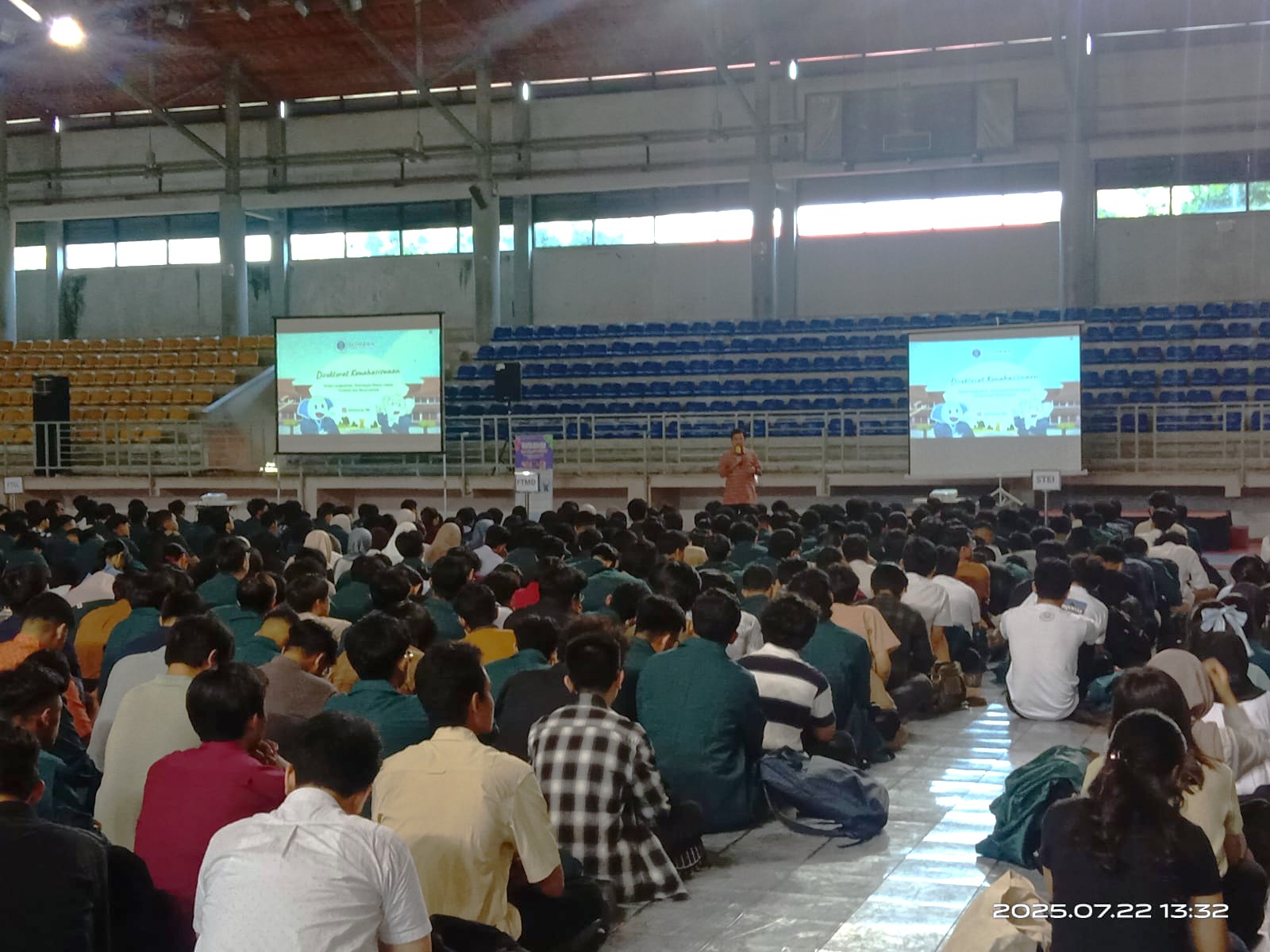
JATINANGOR, kemahasiswaan.itb.ac.id – Institut Teknologi Bandung (ITB) welcomed its new class of 2025 students through a Pre-Welcoming event organized by the Joint Preparation Directorate (DITSAMA) ITB. The event took place over two days, Monday (07/21/2025) and Tuesday (07/22/2025). The first day was for students enrolled through the National Achievement-Based Selection (SNBP) and the International Undergraduate Program (IUP), while the second day was for students enrolled through the National Test-Based Selection (SNBT) and the Independent Selection.
Following the Pre-Welcoming event, students received their alma mater jackets and participated in an Academic Readiness Mapping (PKA), which began on Wednesday (07/23/2025) and consisted of several stages. PKA is an important part of preparing students to begin the 2025/2026 academic year.
Academic Readiness Mapping is a program aimed at assessing new students' basic abilities in subjects such as mathematics, physics, and chemistry. The results of this mapping will be used to develop more appropriate learning strategies in the early stages of college. Furthermore, this data will also serve as the basis to provide additional learning support, such as Student Center for Learning (SCL) services.
In her remarks, Prof. Dr. Fatimah Arofiati Noor, Director of DITSAMA ITB, emphasized that PKA is not a selection test. Students are asked to complete the exam honestly and independently so that the results reflect their true abilities. The PKA is a form of ITB's commitment to ensure students could begin college with optimal preparation.
"The PKA is not a selection test. It is a form of ITB's commitment in ensuring that students begin college adequately prepared, particularly in mathematics, physics, and chemistry," said Prof. Fatimah.
During the pre-welcoming activities, new students were also introduced to various student activities overseen by the Directorate of Student Affairs (Ditmawa) ITB. Ditmawa offers various self-development programs that all students can participate in. These programs are managed by several sub-directorates with varying focuses, ranging from professional development, achievement, character, and scholarships.
Under the Sub-Directorate of Professional Development and Student Entrepreneurship, students can access services such as the ITB Career Center, and the Integrated Career Pathway (TKT) program for student career development. The Student Entrepreneurship Program (PMW) can also foster an entrepreneurial spirit among students.
The Sub-Directorate of Student Achievement and Organizations facilitates the development of academic and non-academic achievements. Activities such as the Outstanding Student Selection (Mapres) and the Mathematics and Natural Sciences Olympiad provide a platform for students to compete and hone their potential. Furthermore, various campus activities, such as the Student Family Study Orientation (OSKM), Community Service Program (KKN), and graduation ceremonies, are held as part of the dynamic organizational life at ITB.
To support financial needs and encourage achievement, the Scholarship Sub-Directorate offers various assistance schemes, ranging from need-based scholarships to merit scholarships. Students are encouraged to take advantage of these opportunities to optimize their study experiences.
Meanwhile, the Student Character Development Sub-directorate focuses on character development and mental health. Programs such as Character Development Training (CDT), habituation and character building activities in the dormitory, and Student Leadership Training (LKM) are part of ITB's efforts to develop resilient individuals with integrity. ITB also provides psychological services through Guidance and Counseling (BK), which can be accessed through a certain booking system and is handled by professional psychologists located across ITB multi-campus.
The Director of Student Affairs, Prof. Dr. Muhamad Insanu, S.Si., M.Si., promotes students’ involvement in extracurricular activities. He stated that many important soft skills can only be acquired through active participation in various student activities. He also emphasized that student activity will be recorded on student transcripts in addition to academic transcripts.
"What I hope is that you can become students who are active in student activities. (Because) through those activities, there are several soft skills you can gain from your college studies," he said.